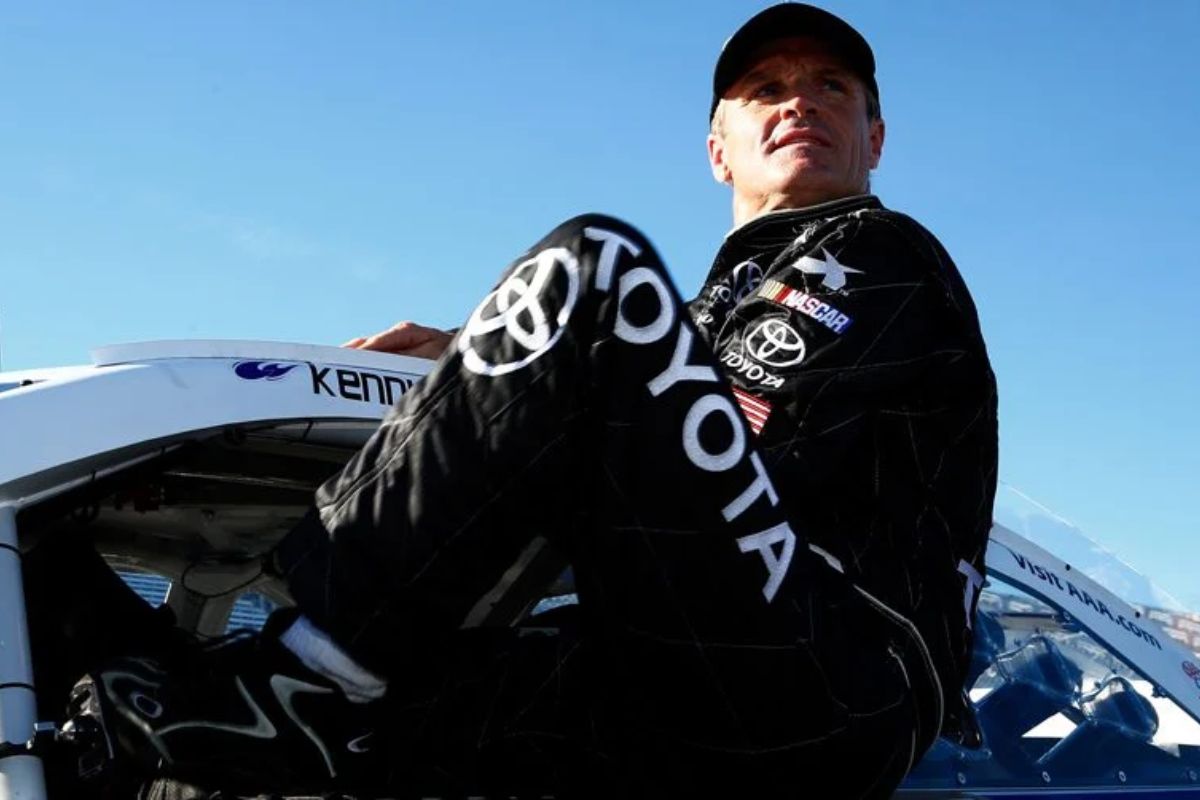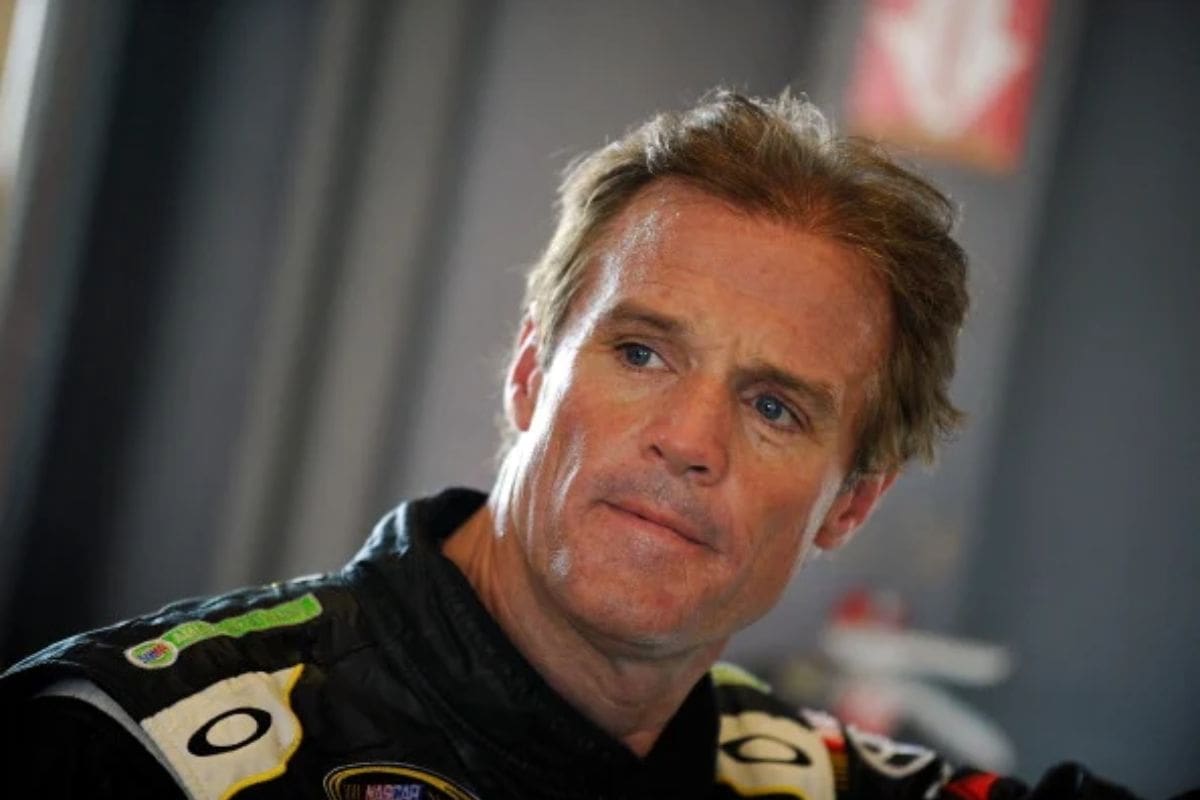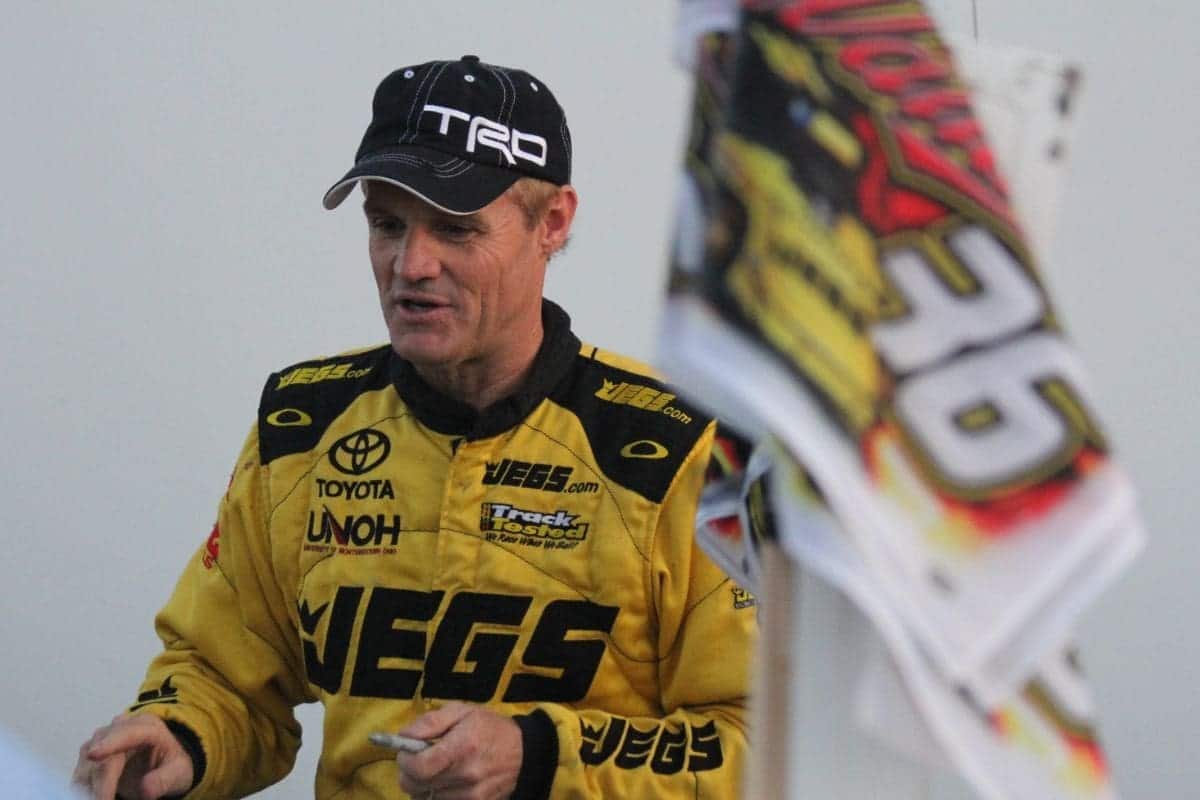Kenny Wallace’s Bold Claim: In NASCAR, the recent dispute involving Kenny Wallace and Randy LaJoie, father of racer Corey LaJoie, has thrown the spotlight on the profound implications of legacy and recognition within the sport. Wallace’s provocative assertion—that the LaJoie family will fade from NASCAR’s collective memory—has not only stirred controversy but also ignited a broader debate about the criteria for historical significance in racing circles. This incident provokes questions about how contributions are valued and remembered in sports where family ties often run deep.
Key Takeaways
- Kenny Wallace made a contentious statement regarding nepotism in NASCAR, leading to a public disagreement with Randy LaJoie.
- Randy LaJoie, father of driver Corey LaJoie, defended the role and recognition of legacy families in NASCAR following Wallace’s comments.
- The clash highlighted ongoing debates about the balance between legacy and merit in NASCAR’s driver selection and success criteria.
- Wallace’s comments sparked broader discussions in the NASCAR community about the influence of familial ties versus individual talent.
- The incident between Wallace and LaJoie shows the emotional and personal connections that fuel dynamics within the NASCAR community.
Family Legacy
Family legacies in NASCAR, such as the France family’s longstanding stewardship since 1948, highlight the pivotal role of familial lineage in shaping the sport’s historical and operational fabric. This deep-rooted family influence not only emphasizes a dedication to the sport’s heritage but also guarantees a stable governance structure that has withstood the fluctuations of competitive sports management.
Bill France Sr., the progenitor of NASCAR, established a dynasty that has strategically guided the organization through different phases of growth and challenges, embedding resilience and continuity at its core. His vision was not merely to create a racing circuit but to institutionalize stock-car racing as a revered sport in America. This vision was adeptly carried forward by his son, Bill France Jr., who took over in 1972 and further propelled NASCAR into a national spectacle, thus solidifying the family’s legacy within the sport.
Moreover, the France family’s role in NASCAR extends beyond mere operational leadership; it represents a symbolic continuity that is crucial in fostering a sense of community and belonging among teams, drivers, and fans alike. This sense of continuity is crucial for sustaining passion and loyalty, which are indispensable for the sport’s longevity and vibrancy.

Debate Over Nepotism
Amid the fast-paced evolution of NASCAR, the issue of nepotism has resurfaced, primarily triggered by Kenny Wallace’s recent controversial remarks involving the LaJoie family. Wallace’s assertion that Chase Elliott might end his career as the last of a ‘great NASCAR bloodline’ has reignited discussions on the role of familial ties within the sport.
The nepotism debate in NASCAR is complex, influenced by both historical context and the modern reality of the sport. Historically, family connections have played a significant role in providing opportunities within the racing community. Names like Earnhardt, Petty, and Allison have become synonymous with NASCAR, often sparking debates about the balance between legacy and talent.
However, the response from Randy LaJoie, representing a family deeply embedded in the sport, highlights the tension between preserving legacy and fostering inclusivity. The debate is not merely about individual opportunities but also about how the sport positions itself culturally.
Assessing NASCAR’s Racing Dynasties
NASCAR’s racing dynasties, from the Earnhardts to the Elliotts, have profoundly shaped the sport’s competitive landscape and cultural heritage. These families have not only contributed to the thrilling races and iconic moments but have also played significant roles in the evolution and popularization of NASCAR. The influence they wield is measurable both on and off the racetrack, as they bring a blend of skill, legacy, and fan engagement that is unique to the sport’s dynastic nature.
- Heritage and Continuity: Racing dynasties provide a sense of continuity, connecting past and present narratives within NASCAR. This phenomenon helps maintain and grow fan bases across generations, as loyalty and rooting interests are often passed down through families.
- Performance and Expectation: Members of racing dynasties often face immense expectations to perform, given their family histories. This expectation can drive high levels of competition and innovation within the sport as these drivers push to honor their family names with significant achievements.
- Marketing and Sponsorship: Dynastic families in NASCAR are powerful branding tools. They attract substantial sponsorships and media attention, which in turn finance teams and promote the sport globally.
- Cultural Influence: These families often embody and perpetuate the values and traditions of NASCAR, contributing to the sport’s cultural identity and its appeal to a diverse audience.

Kenny Wallace’s Controversial Statements
Recently, Kenny Wallace made headlines with his provocative assertion regarding the competitiveness of current NASCAR drivers compared to those from established racing families. Wallace’s comments stirred considerable discussion within the NASCAR community, questioning whether lineage or individual talent plays a more decisive role in the sport’s success.
“He (Randy) said: ‘You said that Chase Elliott was the last of the great Bloodlines.’ I said ‘Yep.’ I said, ‘Okay so you think Corey is another one of the great Bloodlines?’ Now, Randy didn’t hate me but his feelings were hurt.”
“So I just want to say this. I’ve already said it, I’m repeating myself. Randy LaJoie is a great race car driver, He’s one of the 75 greatest race car drivers. He’s a two-time champion in the NASCAR Xfinity Series but my point is this. I was an okay Cup driver okay? I’m going to put the dagger in my back… I was an okay Cup driver. I ran 350-something Cup races, ran second three times. But never got what I wanted ….Randy Lajoie is a great race car driver but he was not a great Cup driver (either)…“ – kenny
Analyzing Wallace’s statement, it’s crucial to take into account the empirical data within NASCAR’s history. The achievements of the Petty, Jarrett, and Elliott families are not merely anecdotal but represent a significant pattern of success. The Pettys collectively hold 10 championships, a monumental feat highlighting the advantages that may come from generational involvement in the sport, including accumulated knowledge, resources, and network access.
However, Wallace’s claim warrants a deeper investigation into the broader landscape of NASCAR, where numerous champions and consistent performers do not come from established racing families. This suggests that while racing lineage might contribute to a driver’s competitive edge, it is not an exclusive pathway to success. Factors such as individual skill, adaptability to technological advancements in racing, and the quality of team support also play critical roles.
Kenny Wallace’s Exchange with Randy LaJoie
Kenny Wallace’s provocative remarks about NASCAR’s racing dynasties quickly prompted a direct confrontation with Randy LaJoie, who expressed his grievances concerning Wallace’s statements. Wallace had earlier lauded Chase Elliott as ‘the very last of a great bloodline,’ following his victory in Texas. This comment seemingly overlooked several other notable racing families currently active in NASCAR, including the LaJoies.
“I guess I’ve told you a hundred times. Randy’s a great driver and he’s one of my very dear friends. I’d do anything for Randy. However, Randy is not a Bill Elliott…“
“When I said what I said, I was talking like Dale Earnhardt Sr you know, Bill Elliott, we’re talking Wood Brothers… you know what I’m saying.”- kenny
Randy, a two-time Busch Series champion, approached Wallace to address what he perceived as an oversight or undervaluation of his family’s ongoing contribution to the sport.
“I love Dave Blaney. Dave Blaney is one of the greatest race car drivers of all time, but damn it, I’m talking about NASCAR guys that have won seven championships. 22-time most popular driver.” – kenny
- Recognition and Representation: LaJoie’s reaction emphasizes the sensitivity regarding recognition and representation of legacy families within NASCAR, beyond the headline-grabbing names.
- Media Influence on Perception: Wallace’s statement as a media figure can profoundly impact public perception, which can either validate or marginalize the contributions of less publicized racers and their legacies.
- Legacy and Contribution: The disagreement brings to light the broader question of what constitutes a ‘great bloodline’ in motorsports, challenging the criteria and acknowledging multiple dimensions of racing heritage.
- Interpersonal Dynamics in NASCAR: The incident illustrates the personal connections and emotional investments that individuals have in the sport, which can sometimes lead to public disagreements when perspectives clash.

News in Brief: Kenny Wallace’s Bold Claim
The conflict between Kenny Wallace and Randy LaJoie emphasizes the profound importance of legacy and recognition within NASCAR. This disagreement reveals the emotional depth and personal stakes attached to familial contributions in sports history.
Such incidents prompt a broader reflection on how legacies are valued and contested within sporting communities. It also highlights the need for a balanced appreciation of past contributions while fostering an inclusive environment for the celebration of all participants’ achievements.
Our Reader’s Queries
Q: Did Kenny Wallace ever win a race?
A: Kenneth Lee Wallace, born on August 23, 1963, is a distinguished American race car driver and former Fox NASCAR reporter. After an career spanning from 1988 to 2015, he retired from NASCAR. Throughout his remarkable 25-year tenure, Wallace secured nine victories, all within the NASCAR Xfinity Series.
Q: Who is Kenny Wallace’s friend Jughead?
A: Kenny Wallace interviews his buddy and longtime crew member Frankie “Jughead” Rawlins!
Q: Is Kenny Wallace in the Hall of Fame?
A: Even today, Kenny Wallace maintains his competitive edge as a formidable dirt track racer. His enduring prowess garnered recognition from the Missouri Sports Hall of Fame, which proudly inducted him into its esteemed Class of 2023.
Also Read: Alex Bowman’s Dale Jr. Moment” href=”https://slicksandsticks.com/2024/04/30/kenny-wallace-highlights-alex-bowmans-dale-jr-moment/” rel=”bookmark”>Kenny Wallace Highlights Alex Bowman’s Dale Jr. Moment
